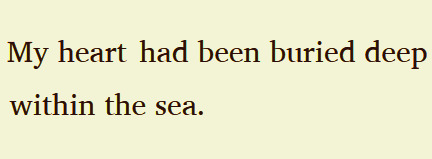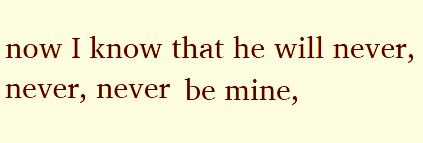#c. p. cavafy collected poems
Explore tagged Tumblr posts
Text

C. P. Cavafy, The Windows
24 notes
·
View notes
Text

Constantine P. Cavafy, from The Collected Poems of C. P. Cavafy; "A Love,"
#lit#constantine p. cavafy#writings#poetry#greek literature#quotes#fragments#typography#dark academia#selections#p
677 notes
·
View notes
Text
Interesting Poem - "Waiting for the barbarians" C.P. Cavafy
I found poem "Waiting for the barbarians" interesting as it shows how the effect of longing for change. The poem is a dialogue and while the idea of barbarians coming and changing everything that people have worked for seems bad, yet Romans seem to want to welcome them as they believe there is nothing left to do. At the end, barbarians do not come and this anticlimactic ending creates a eerie and anxious effect on the reader.
"Waiting for the barbarians" C.P. Cavafy
What are we waiting for, assembled in the forum?
The barbarians are due here today.
Why isn’t anything going on in the senate?
Why are the senators sitting there without legislating?
Because the barbarians are coming today.
What’s the point of senators making laws now?
Once the barbarians are here, they’ll do the legislating.
Why did our emperor get up so early,
and why is he sitting enthroned at the city’s main gate,
in state, wearing the crown?
Because the barbarians are coming today
and the emperor’s waiting to receive their leader.
He’s even got a scroll to give him,
loaded with titles, with imposing names.
Why have our two consuls and praetors come out today
wearing their embroidered, their scarlet togas?
Why have they put on bracelets with so many amethysts,
rings sparkling with magnificent emeralds?
Why are they carrying elegant canes
beautifully worked in silver and gold?
Because the barbarians are coming today
and things like that dazzle the barbarians.
Why don’t our distinguished orators turn up as usual
to make their speeches, say what they have to say?
Because the barbarians are coming today
and they’re bored by rhetoric and public speaking.
Why this sudden bewilderment, this confusion?
(How serious people’s faces have become.)
Why are the streets and squares emptying so rapidly,
everyone going home lost in thought?
Because night has fallen and the barbarians haven't come.
And some of our men just in from the border say
there are no barbarians any longer.
Now what’s going to happen to us without barbarians?
Those people were a kind of solution.
Now what’s going to happen to us without barbarians? Those people were a kind of solution. C. P. Cavafy, "Waiting for the Barbarians" from C.P. Cavafy: Collected Poems. Translated by Edmund Keeley and Philip Sherrard. Translation Copyright © 1975, 1992 by Edmund Keeley and Philip Sherrard. Reproduced with permission of Princeton University Press. Source: C.P. Cavafy: Collected Poems (Princeton University Press, 1975)
2 notes
·
View notes
Text
The Afternoon Sun

By C. P. Cavafy
Translated by Edmund Keeley
This room, how well I know it. Now they’re renting it, and the one next to it, as offices. The whole house has become an office building for agents, businessmen, companies.
This room, how familiar it is.
The couch was here, near the door, a Turkish carpet in front of it. Close by, the shelf with two yellow vases. On the right—no, opposite—a wardrobe with a mirror. In the middle the table where he wrote, and the three big wicker chairs. Beside the window the bed where we made love so many times.
They must still be around somewhere, those old things.
Beside the window the bed; the afternoon sun used to touch half of it.
. . . One afternoon at four o’clock we separated for a week only. . . And then— that week became forever.
C. P. Cavafy, "The City" from C.P. Cavafy: Collected Poems. Translated by Edmund Keeley and Philip Sherrard. Translation Copyright © 1975, 1992 by Edmund Keeley and Philip Sherrard. Reproduced with permission of Princeton University Press.
Source: C.P. Cavafy: Collected Poems (Princeton University Press, 1975)
1 note
·
View note
Text
My heart had been buried deep within the sea.
— Constantine P. Cavafy, The Collected Poems of C. P. Cavafy; "A Love"
0 notes
Text
youtube
This is a short visual and auditory savouring of my journeys in Krabi, March and April 2025 to Phi Phi Islands and the Railay peninsula in Thailand. I was literally at sea on the day Neptune entered Aries and tat felt totally appropriate, on a 'speed' boat, swimming and snorkelling - living the symbolism of that momentous day.
Thailand, formerly known as Siam, is, appropriately for travellers, a Sagittarius country. It was founded December 10th, 1932. Perhaps this is why they are so good a looking after tourists. Also, King Vajiralonghorn appropriately for a King, a Leo zodiac sign. He was born July 28th, 1952.
I set it to music and a poem by C.P. Cavafy about Odysseus returning home to Ithaca which works very well here to think about all journeys. 00:00 Phi Phi Islands
03:52 Introduction
05:25 'Ithaca' Poem by C.P. Cavafy
07:30 Phra Nang and Railay Beach Sunset
C. P. Cavafy, “Ithaca” from C.P. Cavafy: Collected Poems (Princeton University Press, 1975). Translated by Edmund Keeley and Philip Sherrard. Translation Copyright © 1975, 1992 by Edmund Keeley and Philip Sherrard.
All photos and videos my own Music extracts from: ‘How Close Your Soul’ from ‘Before the Day Breaks’ (2007) ©Robin Guthrie, Harold Budd, provided to You Tube by The Orchard Enterprises. https://www.youtube.com/watch?v=d8uliX-ZJkY&list=OLAK5uy_n4jtVvHuM5KPG61zGqa3ghJJ-h5jJi0w0 ‘Cinematic Dulcimer’ and ‘Elegant Harp’ Audio tracks ©Premier Rushc
#Thailand#PhiPhi#Railay#Krabi#Sea#Islands#Neptune#Speedboat#sunset#travel#journey#discovery#recognition#Ithaca#Poem#Cavafy#Youtube
1 note
·
View note
Video
youtube
Laurie Anderson's Mind-Blowing Performance of 'Waiting for the Barbarians'
By C. P. Cavafy
What are we waiting for, assembled in the forum?
The barbarians are due here today.
Why isn’t anything going on in the senate?
Why are the senators sitting there without legislating?
Because the barbarians are coming today.
What’s the point of senators making laws now?
Once the barbarians are here, they’ll do the legislating.
Why did our emperor get up so early,
and why is he sitting enthroned at the city’s main gate,
in state, wearing the crown?
Because the barbarians are coming today
and the emperor’s waiting to receive their leader.
He’s even got a scroll to give him,
loaded with titles, with imposing names.
Why have our two consuls and praetors come out today
wearing their embroidered, their scarlet togas?
Why have they put on bracelets with so many amethysts,
rings sparkling with magnificent emeralds?
Why are they carrying elegant canes
beautifully worked in silver and gold?
Because the barbarians are coming today
and things like that dazzle the barbarians.
Why don’t our distinguished orators turn up as usual
to make their speeches, say what they have to say?
Because the barbarians are coming today
and they’re bored by rhetoric and public speaking.
Why this sudden bewilderment, this confusion?
(How serious people’s faces have become.)
Why are the streets and squares emptying so rapidly,
everyone going home lost in thought?
Because night has fallen and the barbarians haven't come.
And some of our men just in from the border say
there are no barbarians any longer.
Now what’s going to happen to us without barbarians?
Those people were a kind of solution.
Copyright Credit: C. P. Cavafy, "Waiting for the Barbarians" from C.P. Cavafy: Collected Poems. Translated by Edmund Keeley and Philip Sherrard. Translation Copyright © 1975, 1992 by Edmund Keeley and Philip Sherrard. Reproduced with permission of Princeton University Press.Source: C.P. Cavafy: Collected Poems (Princeton University Press, 1975)
0 notes
Text
THE TOBACCONIST'S WINDOW
Near a tobacconist's brightly-lit window, they were standing among a crowd of people. Their eyes met by chance, and expressed timidly, hesitantly, the deviant desire of their flesh. Then, a few uneasy steps on the sidewalk— until they smiled and slightly nodded.
And after that, the closed carriage . . . the sensuous closeness of the bodies; the joined hands , the joined lips.
- Κωνσταντίνος Π. Καβάφης (K.P. Kavafis), The Collected Poems w. Parallel Greek Text, trans. Evangelos Sachperoglou
Known in English as C P Cavafy, Konstantinos P. Kavafis was a Greek poet. Born in Alexandria in 1863, his poetry deals with a range of historical and philosophical subjects, as well as directly and autobiographically addressing his sexuality.
#gay history#lgbt history#queer history#gay poetry#c.p. cavafy#k.p. kavafis#20th Century#greek history
3 notes
·
View notes
Text

C. P. Cavafy, Walls
13 notes
·
View notes
Text

Constantine P. Cavafy, from The Collected Poems of C. P. Cavafy; "A Love,"
#lit#constantine p. cavafy#poetry#writings#quotes#fragments#typography#dark academia#selections#greek literature#p
736 notes
·
View notes
Photo

“I bonded with Cavafy, who seems so high that my inspiration does not reach him. Except for the heartbreaking ‘The City’ on which I wrote one of my most beautiful melodies. Imagine how much I loved Cavafy, who I had in my pocket in Makronissos (internment camp)…” (Mikis Theodorakis. Letter to the novelist Christos Chomenidis, 23 January 2019) https://www.facebook.com/christos.chomenidis/posts/10160261390249523 ---- Η Πόλις Είπες "Θα πάγω σ' άλλη γή, θα πάγω σ' άλλη θάλασσα, Μιας πόλις άλλη θα βρεθεί καλλίτερη από αυτή. Κάθε προσπάθεια μου μια καταδίκη είναι γραφτή κ' είν' η καρδιά μου — σαν νεκρός — θαμένη. Ο νους μου ως πότε μες στον μαρασμό αυτόν θα μένει . Οπου το μάτι μου γυρίσω, όπου κι αν δω ερείπια μαύρα της ζωής μου βλέπω εδώ, που τόσα χρόνια πέρασα και ρήμαξα και χάλασα" Καινούριους τόπους δεν θα βρεις, δεν θάβρεις άλλες θάλασσες. Η πόλις θα σε ακολουθεί. Στους δρόμους θα γυρνάς τους ίδιους. Και στες γειτονιές τες ίδιες θα γερνάς και μες στα ίδια σπίτια αυτά θ' ασπρίζεις. Πάντα στην πόλι αυτή θα φθάνεις. Για τα αλλού — μη ελπίζεις — δεν έχει πλοίο για σε, δεν έχει οδό. Ετσι που τη ζωή σου ρήμαξες εδώ στην κώχη τούτη την μικρή, σ' όλην την γή την χάλασες. --- You said: “I’ll go to another country, go to another shore, find another city better than this one. Whatever I try to do is fated to turn out wrong and my heart lies buried like something dead. How long can I let my mind moulder in this place? Wherever I turn, wherever I look, I see the black ruins of my life, here, where I’ve spent so many years, wasted them, destroyed them totally.” You won’t find a new country, won’t find another shore. This city will always pursue you. You’ll walk the same streets, grow old in the same neighborhoods, turn gray in these same houses. You’ll always end up in this city. Don’t hope for things elsewhere: there’s no ship for you, there’s no road. Now that you’ve wasted your life here, in this small corner, you’ve destroyed it everywhere in the world. C. P. Cavafy, "The City" (1894) from C.P. Cavafy: Collected Poems. Translated by Edmund Keeley and Philip Sherrard. 1975 https://youtu.be/lpUPn9_hEHc
3 notes
·
View notes
Photo

C. P. Cavafy, As Much As You Can (from Collected Poems, trans. Edmund Keeley and Philip Sherrard)
395 notes
·
View notes
Quote
And, Memory, whatever you can of that love of mine, whatever you can, bring back to me tonight.
Grey by C. P. Cavafy, form The Collected Poems, c. 2007.
Translation by Evangelos Sachperoglou.
2 notes
·
View notes
Note
🍕🎤📚❤
🍕: what pizza toppings do you like? pepperoni, mushrooms and peppers
🎤: what’s your favorite song? of all time? idk it’s hard to pick one... but right now i’m kinda obsessed with cool by dua lipa
📚: what’s your favorite book?C. P. Cavafy: Collected Poems
❤️: what’s something that you love? i haven’t done it in a while but.... summer night talks with friends while staring at the stars
quarantine emoji ask meme
2 notes
·
View notes
Text
The City
You said: “I’ll go to another country, go to another shore, find another city better than this one. Whatever I try to do is fated to turn out wrong and my heart lies buried like something dead. How long can I let my mind moulder in this place? Wherever I turn, wherever I look, I see the black ruins of my life, here, where I’ve spent so many years, wasted them, destroyed them totally.” You won’t find a new country, won’t find another shore. This city will always pursue you. You’ll walk the same streets, grow old in the same neighborhoods, turn gray in these same houses. You’ll always end up in this city. Don’t hope for things elsewhere: there’s no ship for you, there’s no road. Now that you’ve wasted your life here, in this small corner, you’ve destroyed it everywhere in the world.
BY Constantine Peter Cavafy TRANSLATED BY EDMUND KEELEY
C. P. Cavafy, "The City" from C.P. Cavafy: Collected Poems. Translated by Edmund Keeley and Philip Sherrard. Translation Copyright © 1975, 1992 by Edmund Keeley and Philip Sherrard. Reproduced with permission of Princeton University PressSource: C.P. Cavafy: Collected Poems (Princeton University Press, 1975)
1 note
·
View note
Text
Ithaka
My research supervisor sent this poem to us, before we get fully started on our final year research projects. I liked the message I received from it, so I thought I’d pass it on; not that it counteracted the stress that the rest of her email gave me...
ITHAKA
BY C. P. CAVAFY
TRANSLATED BY EDMUND KEELEY AND PHILIP SHERRARD
As you set out for Ithaka
hope your road is a long one,
full of adventure, full of discovery.
Laistrygonians, Cyclops,
angry Poseidon—don’t be afraid of them:
you’ll never find things like that on your way
as long as you keep your thoughts raised high,
as long as a rare excitement
stirs your spirit and your body.
Laistrygonians, Cyclops,
wild Poseidon—you won’t encounter them
unless you bring them along inside your soul,
unless your soul sets them up in front of you.
Hope your road is a long one.
May there be many summer mornings when,
with what pleasure, what joy,
you enter harbors you’re seeing for the first time;
may you stop at Phoenician trading stations
to buy fine things,
mother of pearl and coral, amber and ebony,
sensual perfume of every kind—
as many sensual perfumes as you can;
and may you visit many Egyptian cities
to learn and go on learning from their scholars.
Keep Ithaka always in your mind.
Arriving there is what you’re destined for.
But don’t hurry the journey at all.
Better if it lasts for years,
so you’re old by the time you reach the island,
wealthy with all you’ve gained on the way,
not expecting Ithaka to make you rich.
Ithaka gave you the marvelous journey.
Without her you wouldn't have set out.
She has nothing left to give you now.
And if you find her poor, Ithaka won’t have fooled you.
Wise as you will have become, so full of experience,
you’ll have understood by then what these Ithakas mean.
C. P. Cavafy, "The City" from C.P. Cavafy: Collected Poems. Translated by Edmund Keeley and Philip Sherrard. Translation Copyright © 1975, 1992 by Edmund Keeley and Philip Sherrard. Reproduced with permission of Princeton University Press.
Source: C.P. Cavafy: Collected Poems (Princeton University Press, 1975)
2 notes
·
View notes